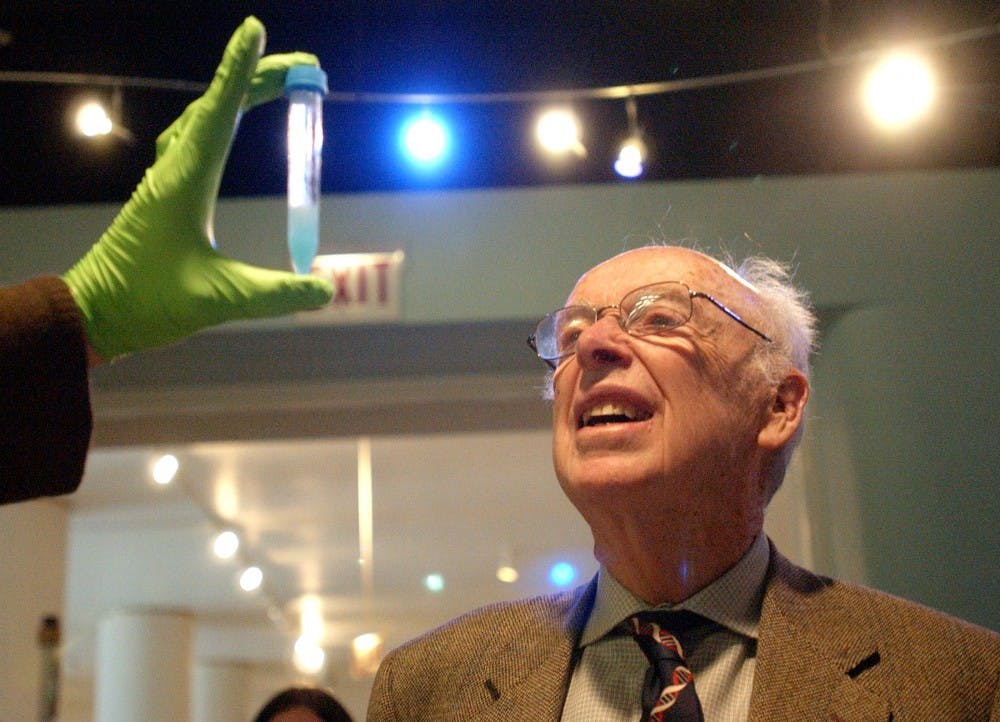Earlier this month, PBS aired a new documentary about James Watson, co-discoverer of DNA and IU alumnus. In the documentary, "Decoding Watson," one of the topics discussed is Watson’s previous statements that black people are less intelligent than white people.
When the interviewer in the documentary asks Watson if he has changed his views since then, Watson answers no. “I would like for them to have changed,” he continued, but said they haven’t because “there is a difference on the average between blacks and whites on IQ tests,” a difference he claims is genetic.
On Jan. 11, the Cold Spring Harbor Laboratory revoked all of Watson's honorary titles because of his comments. This is fair — his statements have no basis in scientific knowledge today, and it is unfortunate he has not kept up with the times.
At age 90, Watson is obviously a product of his time. However, being such an important figure, his words matter, and he used them irresponsibly.
Contrary to Watson’s confusion, we are all pretty much the same genetically. As noted by the American Anthropological Association in 1998, “The continued sharing of genetic materials has maintained all of humankind as a single species.”
In addition, no single gene determines how intelligent you will be. The U.S. National Library of Medicine’s article, “Is intelligence determined by genetics?”, notes it is more likely that “a large number of genes are involved, each of which makes only a small contribution to a person’s intelligence.”
Indeed, the differences between blacks and whites in the IQ studies that Watson references cannot be connected to genetics alone, if at all. Because blacks and whites tend to live apart from each other, environment is confounded with race. So how can you conclude from these studies with certainty that race is the only driver of intelligence?
As an analogy, consider that the U.S. life expectancy for white people is 78.9 years, while that of black people is only 74.6 years. It would be ridiculous to conclude that white people have "stronger" genes than black people. Rather, the difference may be due to a physical toll racism takes on black people and other people of color. In other words, the difference is one of nurture, not nature.
As for IQ tests in general, psychologists are beginning to agree that, while current IQ tests have been useful in some cases, intelligence tests ought to be more comprehensive of different types of intelligence that have been identified.
Watson's comments remind me of Stephen Jay Gould's essay “Women’s Brains.” Gould examined the claim by 19th century psychologist Paul Broca that women have smaller brains than men and are less intelligent.
While Broca performed his skull measurements carefully, he nevertheless analyzed his data in such a way to confirm his pre-existing biases. In reality, Gould said, there may be so many factors influencing brain size that the effective difference between men and women is minimal.
With regards to race and intelligence, we can almost certainly say the same.
“I would rather label the whole enterprise of setting a biological value upon groups for what it is: irrelevant and highly injurious,” Gould wrote.
He’s right.
James Watson will always be considered an essential biologist of the 20th century, along with Francis Crick and Rosalind Franklin. But scientists should not misuse their science to promote negative views of races or genders, both because it hurts the credibility of the scientific community as a whole, and because it brings harm to the people in those groups.






